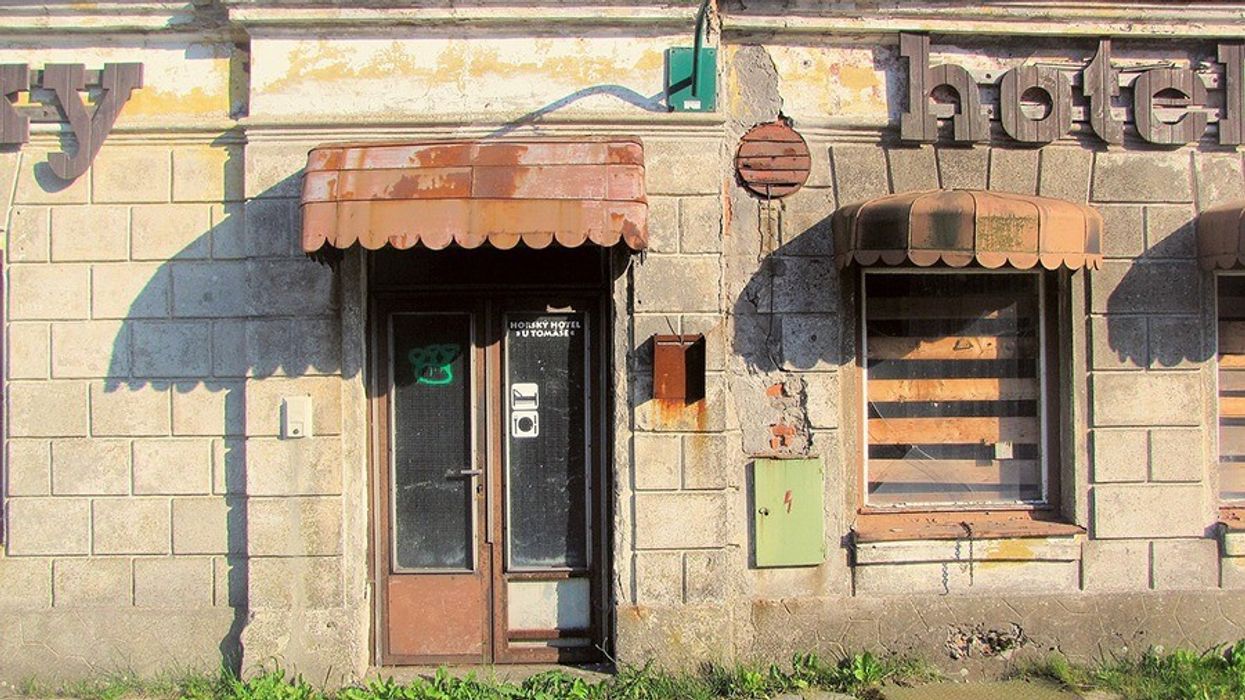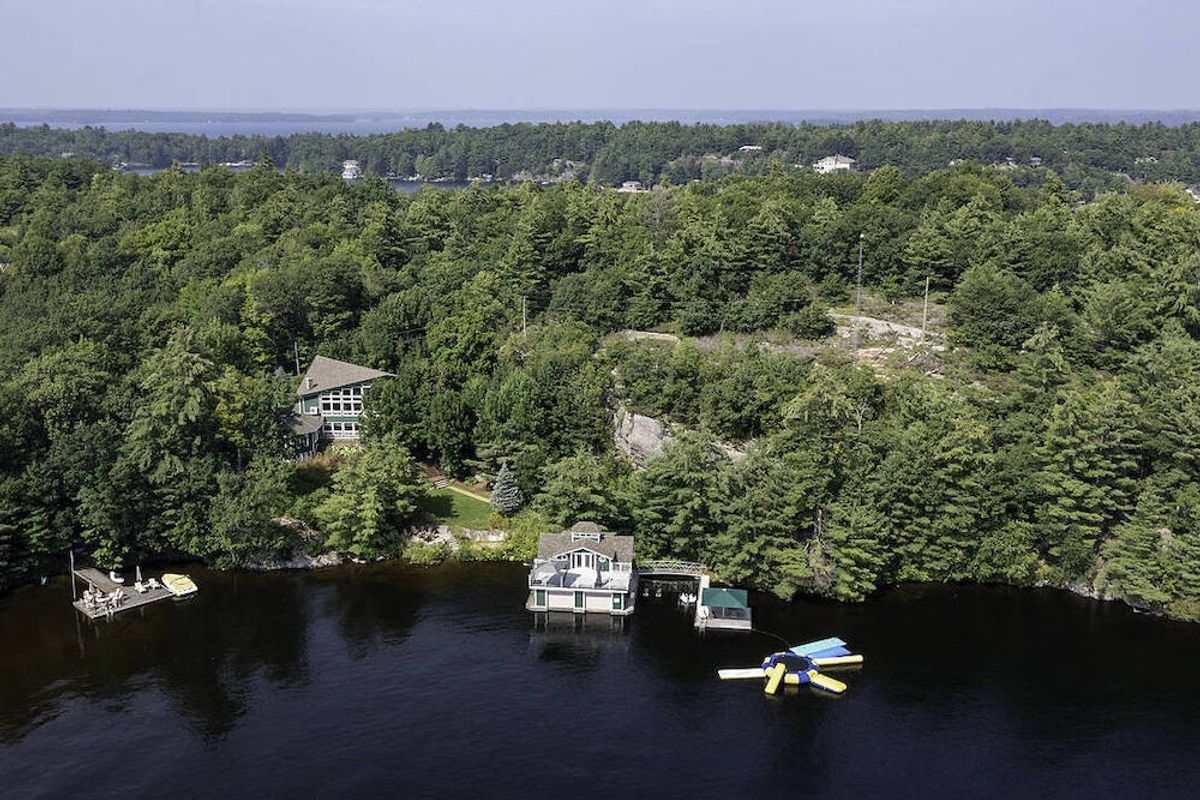Our weekly roundup of real estate news from Toronto, Canada, the U.S., and around the world ending Sept. 29, 2017.
Toronto
Toronto Real Estate Board urges caution over possible vacancy tax (BNN)
The Toronto Real Estate Board is urging the city to exercise caution regarding a possible vacant home tax.
The board says it's worried there is not enough data or evidence to support the idea that a vacancy tax would increase the supply of rental housing.
Toronto arts hub 401 Richmond getting property tax relief (The Toronto Star)
Tax relief is on the way for Toronto’s culture hubs, with the province giving the city the go-ahead to start creating a special category for buildings that house artists and non-profits.
Such a move will help places like 401 Richmond St. W., which has struggled to afford its tax bill amid sky-high assessments in a hot real estate market.
1,000 planned rental units convert to condos in wake of Ontario rent-control expansion (The Globe and Mail)
More than 1,000 planned purpose-built rental units have instead been converted to condominiums in the Greater Toronto Area since Premier Kathleen Wynne's government expanded rent control in the spring, according to a new report that warns the region's rental supply crisis is poised to worsen.
The report, which is to be released on Monday and was obtained by The Globe and Mail, says that already-low vacancy rates will plunge further unless the government enacts policies that encourage developers to build an average of at least 6,250 additional new apartment units a year for the next decade in Ontario.
Canada
Sizzling commercial real estate set for record year with more properties on the block (The Financial Post)
Commercial investment activity is poised to break another record in 2017, according to a new report out Tuesday.
Canada’s six major markets saw commercial real estate investment sales of almost $19 billion in the first half of 2017 — up $4.3 billion, or 29 per cent higher compared to the whole of 2016 — which itself was a record year with $28.4 billion — Avison Young said in its mid-year global investment review.
Canadian Real Estate Buyers Are About To Lose 25% of Their Buying Power (Better Dwelling)
Canadian real estate buyers could lose up to 25% of their mortgage buying power in a few weeks. The Office of the Superintendent of Financial Institutions (OSFI) is currently holding public consultation on new guidelines designed to prevent people from taking on too much mortgage debt.
Whether you’re for or against the proposed rules, you’re probably going to want to see how some of these change impact you. Here are some numbers for typical households in Canada’s largest real estate markets.
Regulator To Canadians: Rising House Prices Are Not A Retirement Plan (HuffPost Canada)
One of Canada's most prominent financial regulators is warning that Canadians may be growing too reliant on rising house prices for their retirement.
In a survey carried out for the Ontario Securities Commission (OSC), 45 per cent of Ontario homeowners aged 45 and over said they are relying on the value of their home increasing to fund their retirement.
USA
U.S. Home Builders Pleased With New Trump, GOP Tax Reform Plan (World Property Journal)
Granger MacDonald, chairman of the National Association of Home Builders (NAHB), today issued the following statement on the tax plan put forth by the White House and GOP congressional leaders:
"NAHB commends President Trump and Congress for making the vital issue of tax reform a top priority. During the past several months, we have conveyed our views and concerns to policymakers and we firmly believe that the plan unveiled today represents a positive step in the right direction.
Stop sugarcoating the housing market: Economist warns that buyers face increasing troubles (CNBC)
From a broad view, the U.S. housing market looks very healthy. Demand is high, employment and wages are growing, and mortgage rates are low.
But the nation's housing market is assuredly unhealthy; in fact, it is increasingly mismatched with today's buyers. While the big numbers don't lie, they don't tell the real truth about the affordability and availability of U.S. housing for the bulk of would-be buyers.
Alec Baldwin expands his Manhattan real estate empire (New York Post)
When Emmy Award-winning actor Alec Baldwin isn’t busy spoofing President Donald Trump on Saturday Night Live, he returns to his other obsession: real estate.
Baldwin famously wrote in New York magazine that he was leaving New York, and public life, in 2014. But three years later, he seems to be more in love with the Big Apple than ever before, stealthily buying up multiple apartments on a single floor of Devonshire House — a grand prewar building at 28 E. 10th St. in the Greenwich Village.
International
Demand will outstrip supply in global luxury market: report (The Real Deal)
The world’s population is getting richer, and they want to spend that wealth on luxury real estate.
The international luxury residential market will see more demand than supply over the next three years, with 25 percent of high-net-worth individuals expected to buy high-end real estate compared to the 17 percent who want to sell, according to a new report from Luxury Portfolio International, a conglomerate of more than 200 brokerages around the world.
Brexit Still Casting Shadow over London's Commercial Property Sector (World Property Journal)
According to international law firm CMS's new research report UK Real Estate - Smart Healthy Agile, 29 percent of real estate professionals are now feeling optimistic about UK's commercial real estate market.
In last year's survey, just before the Brexit vote, only 14% of respondents were feeling optimistic, so the sentiment has doubled in the last 12 months. In fact, 63% were pessimistic in 2016 versus just 23% now.
Official figures show first time buyers returning in Australia after stamp duty change (Property Wire)
First time buyers are returning to some housing markets in Australia after the national Government introduced property tax concessions, new official figures show.
They are more active in markets in Victoria and in New South Wales where numbers increased to their highest level since 2012, up from 8.8% to 11.5%, according to the data from the Australian Bureau of Statistics (ABS).





















